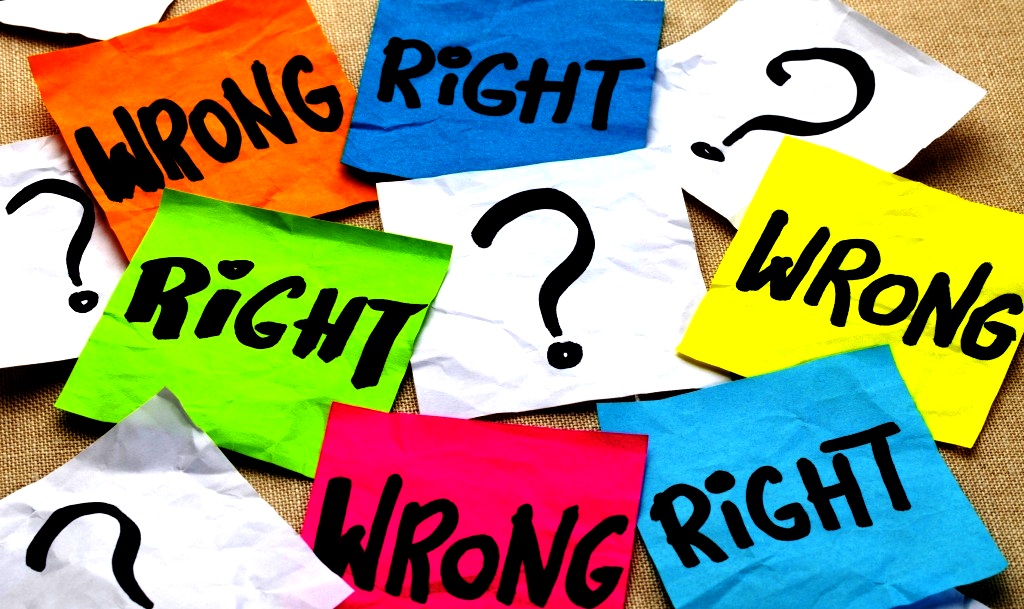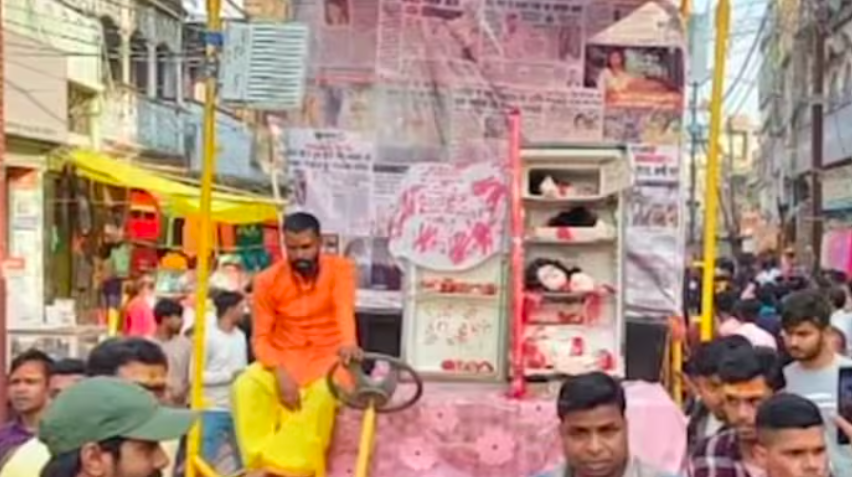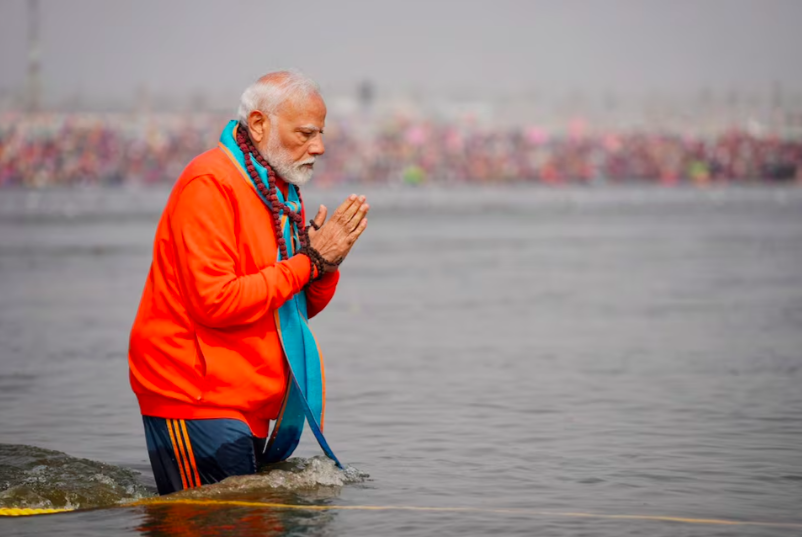Aiman Wasia for BeyondHeadlines
“Nothing is more wonderful than the art of being free, but nothing is harder to learn how to use than freedom” – Alexis de Tocqueville
On hearing the word politics, what usually pops up in mind are images of growth, prosperity, development, welfare etc. but this is just image nothing else and democracy is all about freedom or liberty in my opinion.
The basis of a democratic state is liberty; which, according to the common opinion of men, can only be enjoyed in such a state; this they affirm to be the great end of every democracy. One principle of liberty is for all to rule and be ruled in turn, and indeed democratic justice is the application of numerical not proportionate equality; whence it follows that the majority must be supreme, and that whatever the majority approve must be the end and the just.
Every citizen, it is said, must have equality, and therefore in a democracy the poor have more power than the rich, because there are more of them, and the will of the majority is supreme. This, then, is one note of liberty which all democrats affirm to be the principle of their state.
Another is that a man should live as he likes. This, they say, is the privilege of a freeman, since, on the other hand, not to live as a man likes is the mark of a slave. This is the second characteristic of democracy, whence arose the claim of men to be ruled by none, if possible, or, if this is impossible, to rule and be ruled in turns; and so it contributes to the freedom based upon equality.
In reality, government, politicians and their policies are influenced by corruption and dirty tricks. The actual definition seems to have been obscured and almost lost by such representations and clichés that tend not to pinpoint the true essence, which defines this thing, called politics. Still we are not able to understand what democracy is. As said by Alexis De Tocqueville, “Nothing is more wonderful than the art of being free, but nothing is harder to learn how to use than freedom.”
India is the largest democracy in the world. India has the biggest number of people with franchise rights and the largest number of political parties, which take part in election campaign. There are different political issues in India. Some are of national level while some others are of regional level. Some communities just demand more economical and social rights for their communities, while others demand more autonomy for their cultures within the Indian states. Some demanded autonomous states within the Indian Union, while the others demanded to be independent from India.
More than 150 MPs in the 543-seat lower house of parliament are said to be facing criminal charges. So, is India, a huge nation wracked by immense poverty [30% poverty rate as of 2010], still-high illiteracy rates [about 25% as of 2011], massive social inequality and a deep culture of political corruption, really a functioning democracy?
The present day is lost sight of in perverted forms of government; for many practices which appear to be democratic are the ruin of democracy because both liberty and equality are vanished. Politicians are above the law. This is a state of affairs brought about by the demagogues.
For in democracies which are subject to the law the best citizens hold the first place, and there are no demagogues; but where the laws are not supreme, there demagogues spring up. For the people becomes a monarch, and is many in one; and the many have the power in their hands, not as individuals, but collectively.
Homer says that ‘it is not good to have a rule of many,’ but whether he means this corporate rule, or the rule of many individuals, is uncertain. At all events this sort of democracy, which is now a monarch, and no longer under the control of law, seeks to exercise monarchical sway, and grows into a despot; the flatterer is held in honor; this sort of democracy being relatively to other democracies what tyranny is to other forms of monarchy.
The demagogues make the decrees of the people override the laws, by referring all things to the popular assembly. And therefore they grow great, because the people have things in their hands, and they hold in their hands the votes of the people, who are too ready to listen to them. Such a democracy is fairly open to the objection that it is not a constitution at all; for where the laws have no authority, there is no constitution.
The law ought to be supreme over all, so that if democracy be a real form of government, the sort of system in which all things are regulated by decrees is clearly not even a democracy in the true sense of the word, for decrees relate only to particulars.
Perhaps one of most vexing obstacles to establishing a true and fully functioning democracy in India relates to innumerable ethnic, racial, linguistic and caste issues across the sub-continent. In 1950, India’s constitution guaranteed universal voting rights – in a country that had lived under severe, strict and codified class, caste and ethnic divisions for centuries.
B.R. Ambedkar, the leader of India’s Dalits, the long-oppressed ‘Untouchables,’ noted this dramatic contradiction. “In politics we will have equality and in social and economic life we will have inequality,” he said during a constitution assembly in 1949. “How long shall we continue to live this life of contradictions? How long shall we continue to deny equality in our social and economic life? If we continue to deny it for long, we do so only by putting our political democracy in peril.”
Now, in 2014, corruption is the greatest challenge Indian democracy faces. “The fact that it [corruption] has penetrated India’s entire political fabric has troubling implications for any democracy,” Kugelman said. “This is not to say democracies aren’t corrupt; rare is the democracy that doesn’t suffer from it. Yet India’s scandals seem to be so much bigger – involving more money and abuses of power – than seems the norm. Such corruption helps explain why politicians are so unpopular in India, and in the long term – if not addressed – this systemic corruption could imperil the social contract between people and state that is meant to embody democracy.”
A 2013 UN report stated that a third of the world’s poorest people live in India. In our democracy, anybody can get a party ticket to become an MLA or MP and wield power. Even a murderous criminal, slapped with court cases, can become an electoral candidate; as also a jailbird who can pull strings to emerge on bail. Political parties are ferreting out silver screen personalities as candidates to woo and gloriously pull in their fan base. They mostly win, but it is not clear whether it is through popularity or arm-twisting the public.
The word politics comes from the Greek word “polis”, meaning the state or community as a whole. The concept of the “polis” was an ideal state and came from the writings of great political thinkers such as Plato and Aristotle. Hence, the word politics originally has connotations in the ways in which to create the ideal society. An ideal society is in practice a rather difficult aim and even an impossible aim to achieve. Politics implies measures which could and should, in the views of their devisor, be implemented in the hope to create a better society, than that which is already present.
The theory of politics, which has possessed the mind of men, and which they have expressed the best they could in their laws and in their revolutions, considers persons and property as the two objects for whose protection government exists. Of persons, all have equal rights, in virtue of being identical in nature. This interest, of course, with its whole power demands a democracy. Whilst the rights of all as persons are equal, in virtue of their access to reason, their rights in property are very unequal. One man owns his clothes, and another owns a county. This accident, depending, primarily, on the skill and virtue of the parties, of which there is every degree, and secondarily, on patrimony, falls unequally, and its rights, of course, are unequal. Personal rights, universally the same, demand a government framed on the ratio of the census: property demands a government framed on the ratio of owners and of owning.
Swaminathan S Anklesaria Aiyar says: “Politicians make policy, bureaucrats implement them. Trust and harmony between the two can produce amazing results. If trust and harmony decline, so do decision-making and economic performance”. Bureaucrats can function brilliantly if they get clear signals from their political bosses, and assurance that being decisive (which typically includes short-cuts through a jungle of rules) will further their careers. The law today makes bureaucrats liable for corrupt outcomes even if there is no evidence of their benefiting personally. If political protection is not guaranteed, they stop moving files.
We are in a way responsible for criminalization in politics because if we exercise our responsibilities properly and look upon the politics in India then of course we would be at the conclusion of choosing the best among the political parties. Every individual should have enough knowledge about our political system. Now, it is the high time to think again as a responsible citizen of a country .To vote, not for caste based politics, political dynasty, criminality, harassment and corruption etc.









